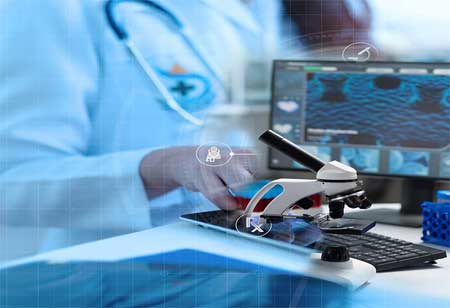Thank you for Subscribing to Healthcare Business Review Weekly Brief
Be first to read the latest tech news, Industry Leader's Insights, and CIO interviews of medium and large enterprises exclusively from Healthcare Business Review
Future Trends in European Medical Transcription and Translation
Significant advancements in technology, evolving healthcare requirements, and an increasing population of multilingual patients are collectively catalysing a transformative era within the European medical transcription and translation landscap

By
Healthcare Business Review | Tuesday, January 02, 2024
Stay ahead of the industry with exclusive feature stories on the top companies, expert insights and the latest news delivered straight to your inbox. Subscribe today.
The European medical transcription and translation industry is undergoing a transformation driven by advancements in technology, healthcare requirements, and multilingual patients.
FREMONT, CA: Significant advancements in technology, evolving healthcare requirements, and an increasing population of multilingual patients are collectively catalysing a transformative era within the European medical transcription and translation landscape.
AI Integration: AI stands on the verge of revolutionising the landscape of medical transcription and translation through various applications. Among these, speech-to-text engines play a pivotal role by leveraging AI capabilities to transcribe medical dictations with exceptional precision. This significantly reduces turnaround times also alleviates the workload on transcriptionists. Furthermore, the advancement of machine translation engines contributes to near-human accuracy in translating medical documents and facilitating real-time communication. In addition, AI-driven sentiment analysis emerges as a valuable tool, capable of analysing transcribed conversations to discern patients' emotional states. This invaluable insight aids healthcare professionals in making more informed diagnoses and enhances the overall delivery of patient care. As these AI applications continue to evolve, the potential for transformative impacts on the medical transcription and translation domain becomes increasingly evident.
Cloud-based Platforms: Cloud-based platforms provide numerous benefits for healthcare professionals. Firstly, they enhance accessibility by enabling medical professionals to access transcribed and translated documents seamlessly from any location with an internet connection. Additionally, these platforms offer scalability, effortlessly accommodating varying workloads and data volumes to meet the dynamic needs of healthcare settings. Furthermore, cloud providers prioritise security, implementing robust measures to safeguard sensitive medical data, ensuring compliance with regulatory standards and fostering a secure environment for healthcare information.
Specialisation and Niche Expertise: The increasing demand for specialised medical transcription and translation services is notable, with a particular emphasis on key areas such as oncology, cardiology, and mental health. In oncology, there is a need for transcribing complex medical reports and clinical trials, requiring a high level of precision. In cardiology, the focus is on accurately capturing nuances in heart sounds and medical terminology to enhance overall understanding. Additionally, in the realm of mental health, there is a crucial requirement for ensuring the sensitive and accurate transcription of patient interactions. This growing need underscores the importance of professional services that can effectively navigate the intricacies of these specialised medical domains.
Emphasis on Data Privacy and Security: Adhering to stringent data privacy regulations, notably GDPR, is imperative for ensuring the security of sensitive medical information. This commitment necessitates the implementation of comprehensive measures. Firstly, robust data encryption protocols must be deployed to safeguard medical data during both storage and transmission, thereby minimising the risk of unauthorised access. Access control measures play a pivotal role in restricting data access to authorised personnel only, reinforcing the confidentiality of medical records.






